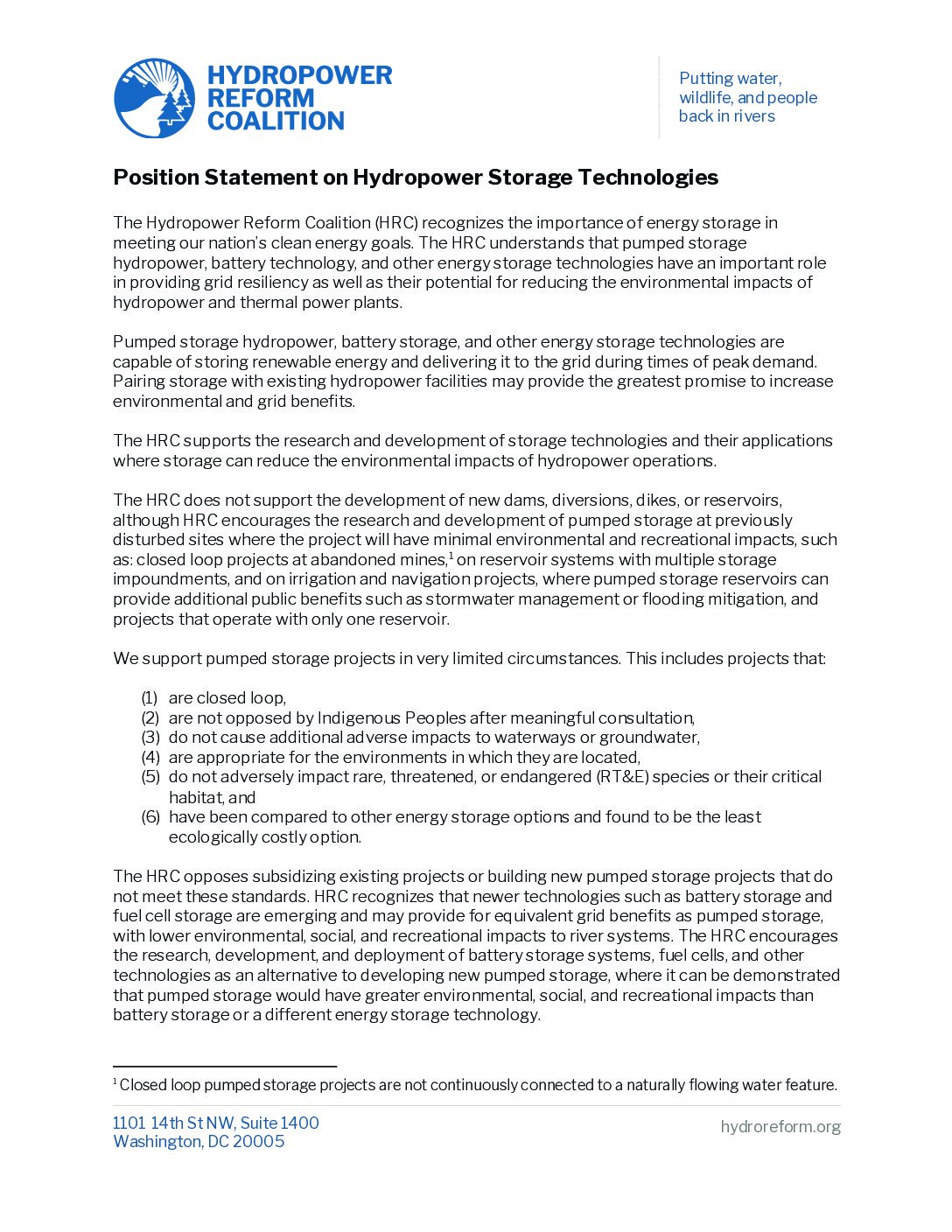The Hydropower Reform Coalition (HRC) recognizes the importance of energy storage in meeting our nation’s clean energy goals. The HRC understands that pumped storage hydropower, battery technology, and other energy storage technologies have an important role in providing grid resiliency as well as their potential for reducing the environmental impacts of hydropower and thermal power plants.
Pumped storage hydropower, battery storage, and other energy storage technologies are capable of storing renewable energy and delivering it to the grid during times of peak demand. Pairing storage with existing hydropower facilities may provide the greatest promise to increase environmental and grid benefits.
The HRC supports the research and development of storage technologies and their applications where storage can reduce the environmental impacts of hydropower operations.
The HRC does not support the development of new dams, diversions, dikes, or reservoirs, although HRC encourages the research and development of pumped storage at previously disturbed sites where the project will have minimal environmental and recreational impacts, such as: closed loop projects at abandoned mines,[1] on reservoir systems with multiple storage impoundments, and on irrigation and navigation projects, where pumped storage reservoirs can provide additional public benefits such as stormwater management or flooding mitigation, and projects that operate with only one reservoir.
We support pumped storage projects in very limited circumstances. This includes projects that:
- are closed loop,
- are not opposed by Indigenous Peoples after meaningful consultation,
- do not cause additional adverse impacts to waterways or groundwater,
- are appropriate for the environments in which they are located,
- do not adversely impact rare, threatened, or endangered (RT&E) species or their critical habitat, and
- have been compared to other energy storage options and found to be the least ecologically costly option.
The HRC opposes subsidizing existing projects or building new pumped storage projects that do not meet these standards. HRC recognizes that newer technologies such as battery storage and fuel cell storage are emerging and may provide for equivalent grid benefits as pumped storage, with lower environmental, social, and recreational impacts to river systems. The HRC encourages the research, development, and deployment of battery storage systems, fuel cells, and other technologies as an alternative to developing new pumped storage, where it can be demonstrated that pumped storage would have greater environmental, social, and recreational impacts than battery storage or a different energy storage technology.
[1] Closed loop pumped storage projects are not continuously connected to a naturally flowing water feature.


 HRC or member-contributed
HRC or member-contributed